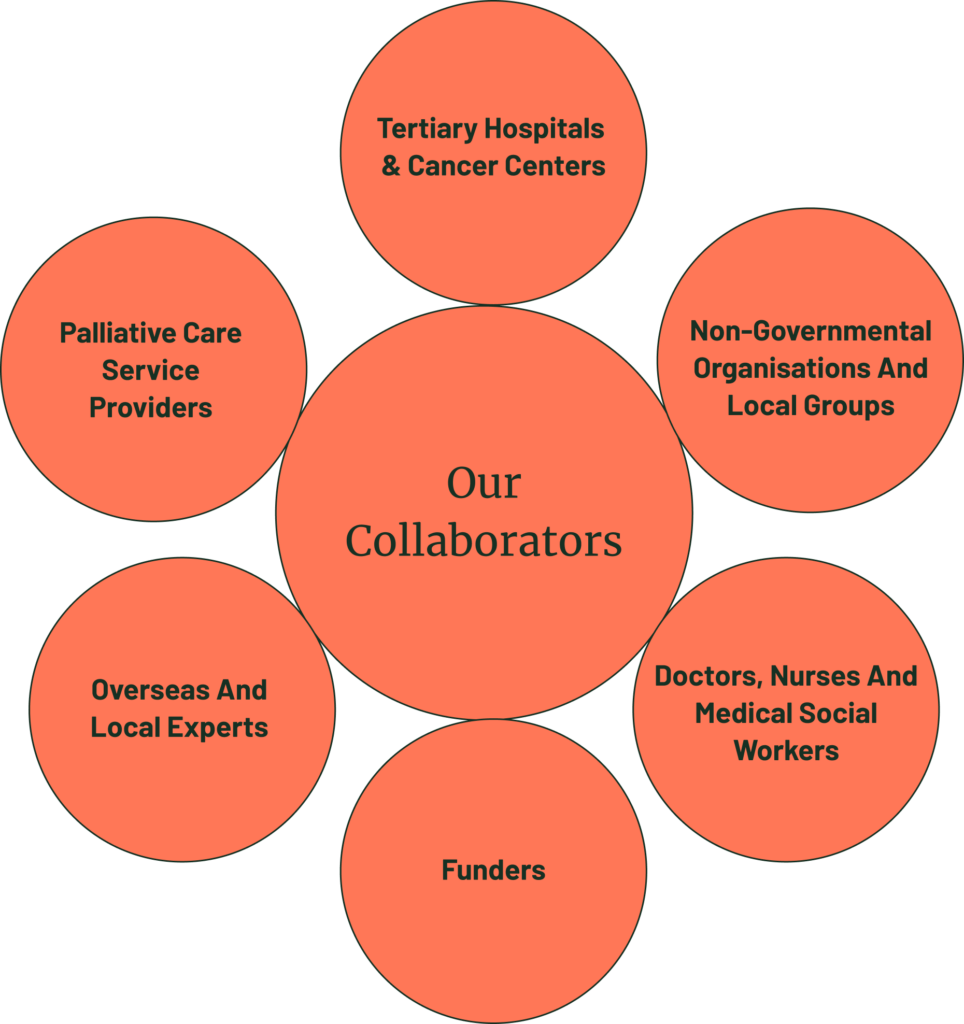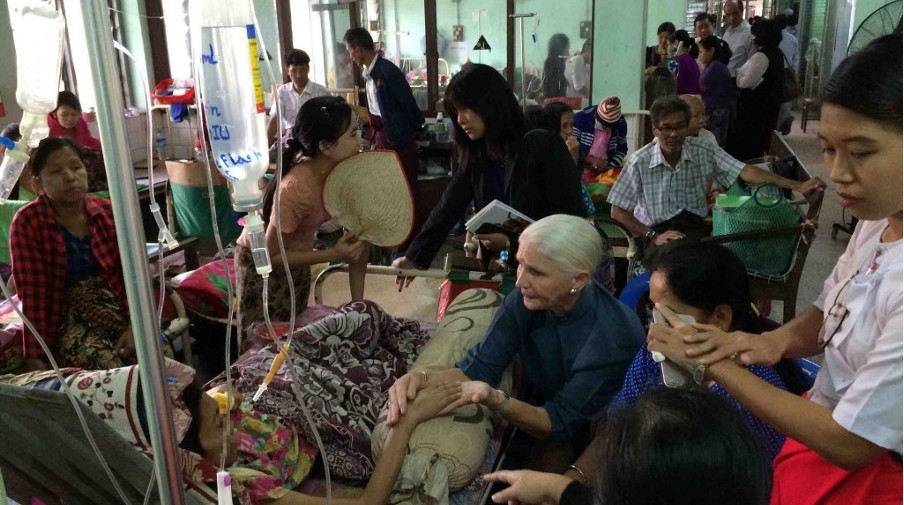The Lien Collaborative for Palliative Care (Lien Collab) is co-developed by the Lien Foundation and Asia Pacific Hospice Palliative Care Network (APHN).
The initiative began in 2012 to meet a growing demand for palliative care from leaders of various developing countries. Lien Foundation worked with APHN, then chaired by the late Prof. Cynthia Goh, to offer a train-the-trainer programme and a platform for developing countries in Asia to establish palliative care capabilities and services in their public healthcare systems.
We launched our first programme in 2013 when a team of 5 palliative care specialists from Singapore and Australia travelled to Myanmar to teach 27 participants from 11 hospitals. Over the decade, similar programmes have been launched in other countries. In each, we work closely with national health ministries and leading tertiary referral hospitals and cancer centres to integrative palliative care into the public healthcare system.
In 2019, Lien Collab began a new phase to widen its reach and accelerate the creation of palliative care services across Asia. The existing programme in India is being developed into a platform with the help of a core team of experts supported by an international faculty.
The Lien Foundation champions palliative care which is a counter discipline that takes suffering seriously as a problem to be tackled. It is good medicine and embodies the principles and practices of a good clinician. We will continue to expand and help build a vibrant fraternity, supporting its leaders to strengthen the soul of the healthcare system, and transform the experience of the seriously ill and their families
Lee Poh Wah
Chief Executive Officer, Lien Foundation
Lien Collab envisions a world where access to quality palliative care services is a basic human right for all individuals and communities facing life-limiting conditions in the Asia. It should be fully integrated into the mainstream healthcare system so that individuals and families receive the care and support they need to live with dignity and comfort.


“In these developing countries, they say, ‘We’ve got nothing. How can we ever reach the development that you’ve got in Singapore?’ I can say to them we started with nothing. When I started work in this area [in Singapore], our health system was not interested in end of life care. We had no services… but you persevere and we’re here to help in whatever way.”
Cynthia Goh
Former APHN chair and pioneer of palliative care in Singapore
Lien Collab’s mission is to facilitate, support, advocate and influence the development of palliative care services and leadership, so as to build capacity in countries with limited services and lead the transformation of the palliative care landscape in the region.
We partner countries with little or no access to palliative care services to:
Through our work, most countries are able to kickstart and expand their palliative care services within a year.


To kickstart palliative care services in a country, we:
Our 6-week course that is usually run over three years trains volunteers to become master trainers in palliative care services. The curriculum comprises interactive case-based learning, ward visits, training with patients and role play.
Through engaging the country’s health ministry, drug regulator as well as international pharmaceutical manufacturers, we find ways to make pain medications more accessible and affordable.
To enhance the capabilities of palliative care clinicians in a country, we send them on attachments to learn from established institutions in the Asia Pacific, including in Singapore and Australia.


Since Lien Collab launched its first programme in Myanmar in 2013, we have trained over 500 participants in across 150 institutions across Asia. Our programmes have reached Bangladesh, Bhutan, China, India, Laos, Malaysia, Sarawak, Sri Lanka and Timor-Leste. We are currently exploring opportunities in the Philippines too.
APHN Secretariat
c/o Division of Supportive & Palliative Care National Cancer Centre Singapore
30 Hospital Boulevard
Singapore 168583
Lien Collaborative for Palliative Care (Lien Collab) draws on philanthropy, health institutions, palliative care service providers, individuals and more to strengthen leadership and capacity in bringing pain relief to all.